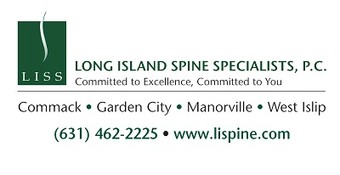|
|

|
« Back
New Understanding of the Short-Term Benefits of Disc Surgery
|
Posted on: 11/30/1999
|
For a long time, now we have had the understanding that disc surgery may not be any more effective than conservative (nonoperative) care. In long-term studies over 10 years or more, patients with painful back and leg pain from disc herniation had the same results with or without surgery. So, many patients toughed it out and avoided surgery.
But a new study from the Netherlands has some additional information to add that might change this practice. They found that the short-term benefits of disc surgery are actually a costs savings. The patient has less pain and better function early on. And even though the medical costs were greater, the cost to society was less.
How did they figure that? Well, decreased absenteeism and higher work productivity tipped the scales in favor of early surgical intervention. At the end of one year, the cost of early disc surgery to society was less than if the patient had struggled through a prolonged course of conservative care.
Looking at this problem from a purely statistical point-of-view, early surgery also translated into greater quality-adjusted life years (QALYs). QALYs is a way of measuring disease burden on a society. It includes both the quality and the quantity of life lived.
QALYs is a useful way to put a number on the benefit of a medical intervention such as disc surgery. They are based on the number of years of life that would be added by the treatment. Zero value (0) is used to represent death. Perfect health is assigned the value of one (1.0). If without surgery, the extra years would not be lived in full health, then the extra life-years are given a value between 0 and 1 to account for this.
A health economist studying this problem might offer the advice to do disc surgery to save money. But decisions aren't always made in the health care system based on supply and demand or what's best for society. Hospitals must look at what is the best use of their resources.
Patients with severe sciatica will likely get better sooner or later without surgery. Some experts argue that resources that might have been used to provide early surgery can be diverted to patients with more serious health concerns. Others stand firm in their belief that it is up to the patient to decide what's best for him or her. Decisions should not be based on what's best for society or the health care system.
|
References:
Balancing Costs and Benefits: Is Disc Surgery Cost-Effective? In The BACK Letter. June 2008. Vol. 23. No. 6. Pp. 61, 67.
|
|
|
« Back
|
|
|
|
*Disclaimer:*The information contained herein is compiled from a variety of sources. It may not be complete or timely. It does not cover all diseases, physical conditions, ailments or treatments. The information should NOT be used in place of visit with your healthcare provider, nor should you disregard the advice of your health care provider because of any information you read in this topic. |
 | All content provided by eORTHOPOD® is a registered trademark of Mosaic Medical Group, L.L.C.. Content is the sole property of Mosaic Medical Group, LLC and used herein by permission. |
|
